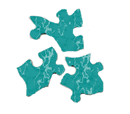
Problem Rating Scale for Outcomes
The Problem Rating Scale for Outcomes is a method to evaluate client progress throughout the period of service. It consists of three five-point, Likert-type scales to measure the entire range of severity for the concepts of Knowledge, Behavior, and Status. Knowledge is defined as what the client knows, Behavior as what the client does, and Status as the number and severity of the client’s signs and symptoms or predicament. Each of the subscales is a continuum providing an evaluation framework for examining problem-specific client ratings at regular or predictable times. Suggested times include admission, specific interim points, and dismissal. Using the Problem Rating Scale for Outcomes with the Problem Classification Scheme and Intervention Scheme creates a comprehensive problem-solving model for practice, education, and research.
The case studies on the Website illustrate how to apply the Problem Rating Scale for Outcomes. More instructions and guidelines for using the Scale, details and examples of application, and additional case studies appear in the 2005 book.

